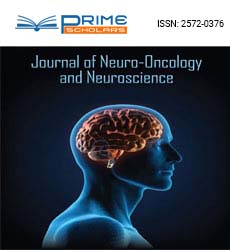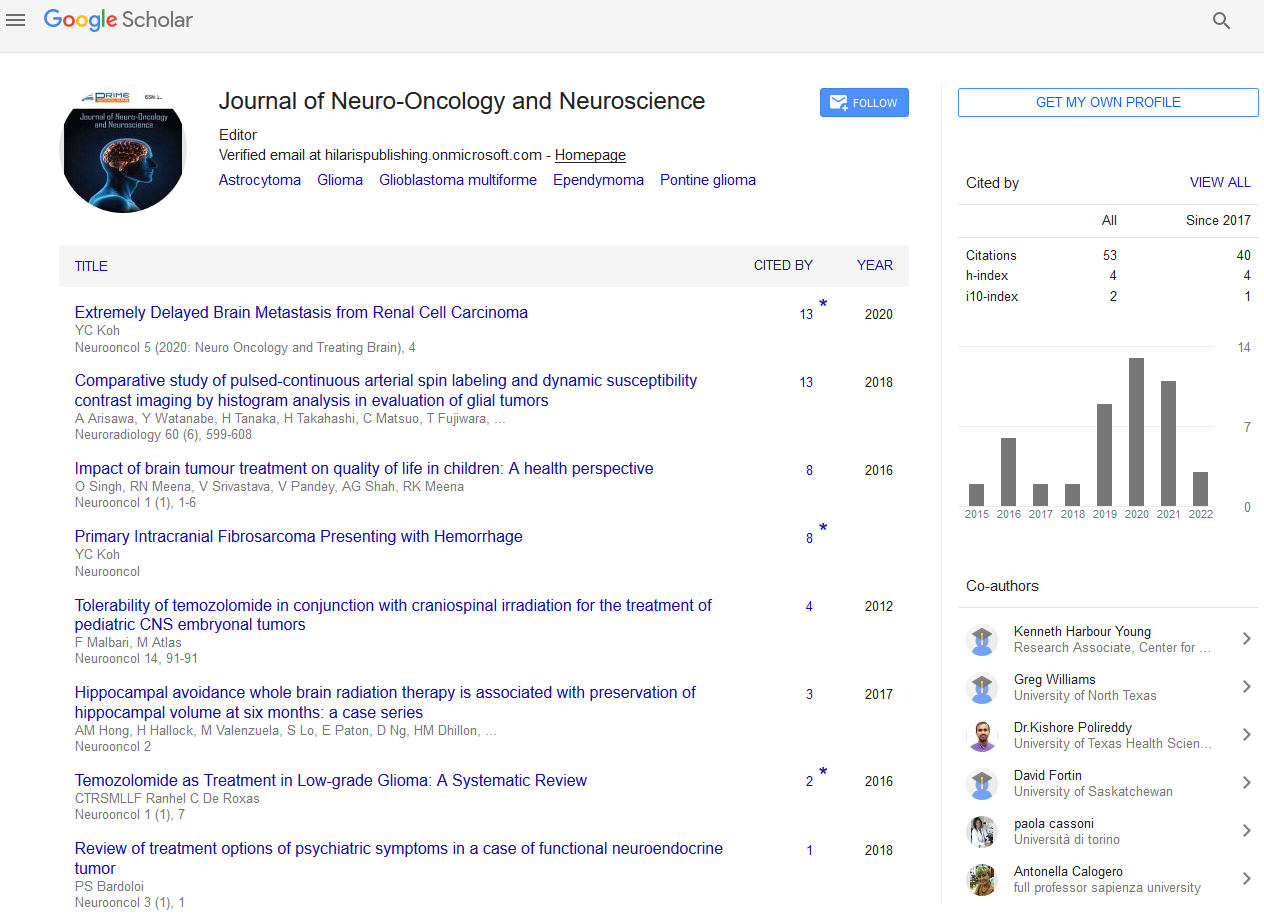Commentary - (2022) Volume 7, Issue 4
Numerous Neurological Disorders Linked to Mutated DNA Repair
Genes
Julian Benito-Leon*
Department of Medicine, Complutense University, Spain
*Correspondence:
Julian Benito-Leon,
Department of Medicine, Complutense University,
Spain,
Email:
Received: 29-Jun-2022, Manuscript No. IPJNO-22-14465(PQ);
Editor assigned: 01-Jul-2022, Pre QC No. IPJNO-22-14465 (PQ);
Reviewed: 15-Jul-2022, QC No. IPJNO-22-14465;
Revised: 20-Jul-2022, Manuscript No. IPJNO-22-14465 (R);
Published:
27-Jul-2022, DOI: 10.21767/2572-0376.22.7.48
Description
Disorders that affect the brain, the nerves that run throughout
the body and the spinal cord are referred to as neurological
disorders by medical professionals. A variety of symptoms can
be caused by structural, biochemical, or electrical abnormalities
in the brain, spinal cord, or other nerves. A wide range of
conditions are included in the category of neurological disabilities,
including, but not limited to, epilepsy, learning disabilities,
neuromuscular disorders, autism, attention deficit hyperactivity
disorder, brain tumors, and cerebral play. Some neurological
conditions manifest before birth and are congenital. Tumors,
degeneration, trauma, infections, and structural flaws can all
contribute to additional conditions. Damage to the nervous
system is the root cause of every neurological disability, regardless
of the cause. The degree of impairment in communication,
vision, hearing, movement, and cognition is determined by the
location of the damage. Various genetic disorders, congenital
anomalies or disorders, infections, lifestyle or environmental
health issues, such as malnutrition, brain damage, spinal cord
injury, nerve injury, or gluten sensitivity (with or without intestinal
damage or digestive symptoms), are examples of specific
causes of neurological issues. It has been reported that neurological
problems can result from metal poisoning, in which
metals build up in the body and disrupt biological processes,
at least with lead. Another body system that interacts with the
nervous system may be the source of the neurological issue.
For instance, cerebrovascular disease is characterized by damage
to the brain brought on by issues with the blood vessels
(cardiovascular system) that supply the brain. The body’s own
immune system causes damage in autoimmune disorders.
Neurological decline is common in Niemann-Pick disease and
other lysosomal storage disorders. People with unexplained
neurological symptoms, particularly peripheral neuropathy or
ataxia, should be evaluated for an underlying coeliac disease, according to the National Institute for Health and Care Excellence.
The term “idiopathic” refers to conditions in which there
is no identifiable neural cause in the vast majority of cases of
neurological symptoms. These “idiopathic” conditions can lead
to a variety of different hypotheses regarding the nature of the
symptoms. In general, a significant number of neurological disorders
may have been brought on by an earlier viral infection
that was not clinically recognized. Infection with the Hepatitis E
virus, for instance, which typically causes no symptoms at first,
is thought to cause neurological disorders; however, there are
numerous other examples as well. Numerous neurological disorders
that are linked to mutated DNA repair genes have been
described. Inadequate DNA repair can disrupt the pattern of
epigenetic alterations necessary for normal neuronal function
and directly result in cell death, neuron depletion, and both.
The nervous system is made up of the brain, spinal cord, and
nerves. All of the body’s functions are under their collective
control. You may experience difficulties moving, speaking,
swallowing, breathing, or learning when a component of your
nervous system malfunctions. Your mood senses, and memory
may also be affected. A common neurological condition known
as Pilepsy is characterized by abnormal electrical activity in the
brain that increases a person’s risk of having recurrent, unprovoked
seizures. Unprovoked means that the seizure was not
caused by other medical conditions like severe electrolyte abnormalities
or extremely high blood sugar and cannot be explained
by exposure to or withdrawal from drugs or alcohol.
Acknowledgement
None.
Conflict of Interest
The author’s declared that they have no conflict of interest.
Citation: Leon JB (2022) Numerous Neurological Disorders Linked to Mutated DNA Repair Genes. Neurooncol. 7:48.
Copyright: © 2022 Leon JB. This is an open-access article distributed under the terms of the Creative Commons Attribution License,
which permits unrestricted use, distribution, and reproduction in any medium, provided the original author and source
are credited.

